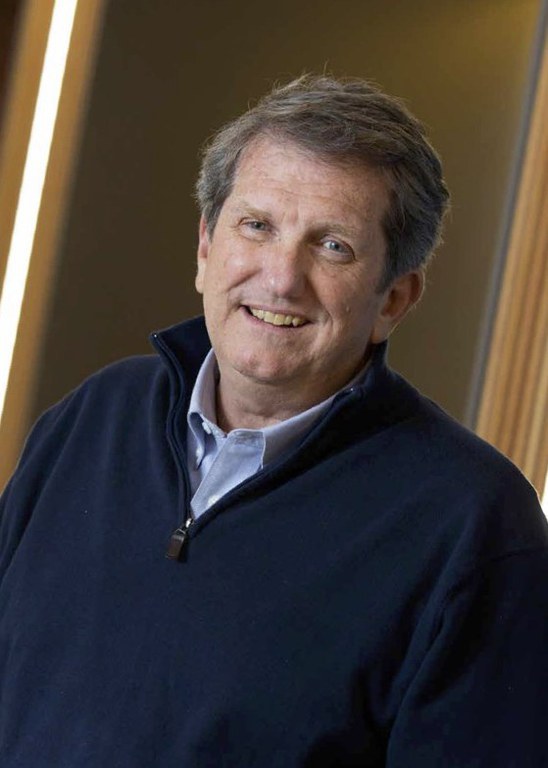Posted: March 17, 2022
Associate Dean for Research and Graduate Education and Director of the Pennsylvania Agricultural Experiment Station
Blair Siegfried returns to his beloved central Pennsylvania home after more than 30 years serving in academic positions around the country, including most recently as chair of the Department of Entomology and Nematology at the University of Florida.
I was born in Pennsylvania and grew up here. My grandfather owned a small farm in Snyder County, and I spent a lot of my youth with him on the farm hunting, fishing, and doing odd jobs. That's what got me interested in the life sciences.
My undergraduate degree at Lock Haven University gave me a good overview of biology, and my undergraduate research at the Mountain Lake Biological Station in Virginia is what sparked my desire to go to graduate school.
I did my Ph.D. with Chris Mullin in entomology at Penn State. My work here gave me an appreciation for applied agriculture, pest management, and how resistance to pesticides impacts our ability to produce crops.
In my postdoc at Cornell University, I worked on the biochemistry and genetics of insecticide resistance in the German cockroach. It wasn't my favorite animal to work with, but it was a good opportunity to learn how to do research and launched me into my first faculty position at the University of Nebraska.
Transgenic plants for insect control were released about five years into my career at the University of Nebraska, and the technology really shifted the direction of my research toward the development of monitoring tools to detect resistance evolution. Later, my lab began to develop technologies, such as RNA interference, to better understand resistance and develop novel pest management tools.
I told my wife Sidney we'd give Nebraska five years and then we'd move to a warmer climate. But that never really happened for 25 years. We got ingrained into the community of Lincoln. It was a very safe and welcoming place.
Our son Ethan lives in Lincoln and is finishing a teaching certificate and master's degree in special education. We're happy for him that he has a passion for what he does.
At the University of Florida, my department focused heavily on invasive species management, urban pest control, and, in the last few years, pollination biology. I worked extensively with the faculty to think about invasion sciences more broadly and what we could do to prevent pests from getting into the state and how we could manage them if they became established. I was also proud to contribute to the creation of a $4.5 million honey bee research and education center.
I've always known about the high quality of Penn State's entomology program, but I'm also looking forward to learning about the other disciplines that are important to agriculture and natural resources, in addition to the other legs of the University's land-grant stool: education and extension. If we all work together and leverage our strengths, I believe we can make a real difference in the world.
Global climate change and food insecurity are among the most important issues of our time, and agriculture and forestry can play an important role in generating solutions. Doing so will require all hands on deck. Part of the role of my new position is to facilitate groups of people to work together to address these and other issues. I also look forward to working with the international programs office to facilitate the work of our faculty that addresses research questions related to global food security.
I've always had a real passion for mentoring and seeing people succeed. I would like to see our graduate program function in a way that our graduate students gain not only disciplinary expertise but also the soft skills that I think a lot of employers are looking for in their hiring.
I think it's important to publicize our research so people understand how the investments of our state and federal governments into the college's research enterprise benefit our state's economy and the health and well-being of our citizens. I'm excited to contribute to this public education and to also visit with stakeholders throughout the Commonwealth to understand how we can better serve them.
I spent the first five years of my adult life trying to get as far away from Pennsylvania as possible and the next 30 trying to get home. I am so happy that I've finally gotten back to the place that is very important to me.
Features
Fostering Forests
Across the United States, forests face unprecedented threats, and scientists in Penn State's College of Agricultural Sciences are conducting novel and complex research to conserve them.
Buzzing With Purpose
Community scientists work to protect Pennsylvania's wild bees
Conservation Reimagined
Exploring new approaches to cope with a changing climate



